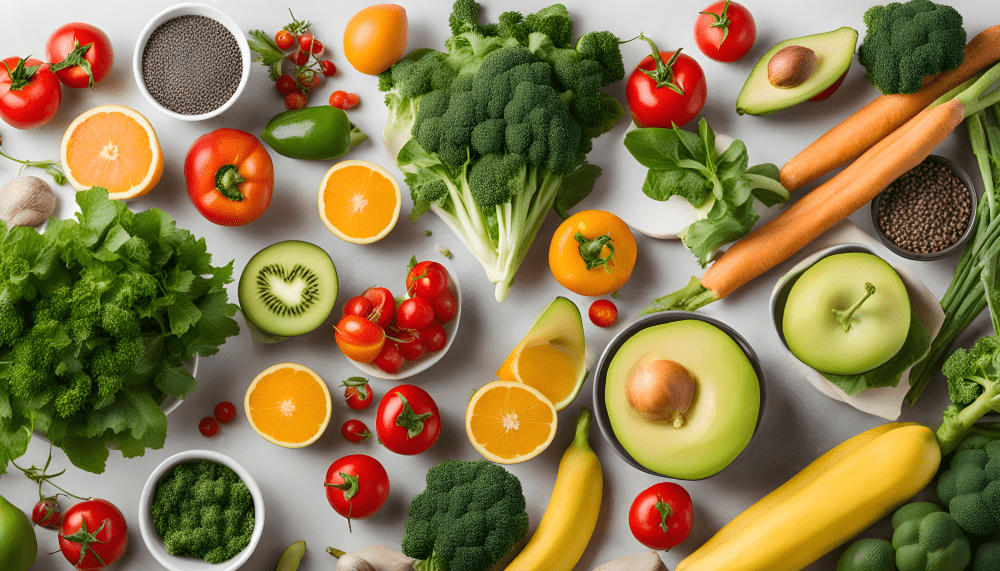Table of Contents




Diet Leafy Plants - Based Diet IntroductioUnlocking Wellness: The Ultimate Guide to the Leaf Diet for Optimal Health and Vitality
When it comes to making dietary choices that can have a positive impact on our health and the environment, adopting a plant-based diet is gaining increasing popularity. A diet places the focus on consuming foods derived from plants, such as fruits, vegetables, whole grains, legumes, nuts, and seeds, while minimizing or excluding the consumption of animal products. In this article, we will delve into what a diet entails, explore the different types of plant-based diets, offer valuable tips for transitioning to a plant-based lifestyle, and shed light on essential nutrients and supplements that can support optimal health.
What is a Plant-Based Diet?
It is characterized by its emphasis on consuming predominantly plant-derived foods and minimizing the intake of animal products. It is a way of eating that prioritizes nutrient-rich fruits and vegetables and encourages the inclusion of whole grains, legumes, nuts, and seeds as integral components of daily meals. By centering our diet around, we not only nourish our bodies with fiber, antioxidants, vitamins, and minerals but also reduce our carbon footprint and contribute to sustainable living.

Vegan Diet
Vegans abstain from consuming any animal-derived products, including meat, fish, poultry, dairy, eggs, and honey. Their meals solely consist of plant-based foods. Veganism is more than a diet; it is a lifestyle that extends to eliminating the use of animal products in clothing, cosmetics, and other aspects of day-to-day life.
Vegetarian Diet
Vegetarians exclude meat, fish, and poultry from their food, but still consume dairy products and eggs. This allows for more flexibility when it comes to meal options, while still promoting a plant-focused approach
Flexitarian Diet
Flexitarian eating is a flexible and inclusive approach to a plant-based lifestyle. Individuals who follow this diet primarily eat vegetarian foods but occasionally incorporate small amounts of lean meat, fish, or poultry. This approach caters to those who want to gradually reduce their animal product consumption or want the freedom to include animal-based foods on specific occasions.
Tips For Transitioning To A Plant Based Diet
Tips for transitioning to a plant-based diet.
Transitioning to consumption can be an exciting and fulfilling journey. Here are some helpful tips to make the process smoother and more enjoyable
Start slowly
Begin by incorporating more fruits, vegetables, and whole grains into your meals.
Gradually reduce your intake of meat and animal products while increasing your repertoire of plant-based recipes.
Experiment with flavors and textures
Explore a variety of herbs, spices, and seasonings to add depth and complexity to your plant-based dishes.
Experiment with different cooking methods like roasting, grilling, sautéing, and steaming to enhance the textures of your meals.
Educate yourself
Research and learn about the nutritional benefits of different veg-based foods.
Expand your knowledge of plant-based proteins, such as tofu, tempeh, legumes, and quinoa, to ensure a well-rounded eats.
Plan your meals
Take time to plan your meals and create a grocery list to ensure you have a variety of veg-based ingredients readily available.
Preparing meals ahead of time can make it easier to stick to your plant-based goals.
Seek support
Connect with the plant-based community by joining online forums or local groups.
Share recipes, tips, and experiences with like-minded individuals who can provide encouragement and advice.
Essential Nutrients And SupplementsmFor A Plat Based Diet
Essential nutrients and supplements for a plant-based diet
While a well-planned plant-based consumption can provide abundant essential nutrients, it is crucial to pay attention to certain elements to maintain optimal health. Here are some essential nutrients and supplements to consider:
Protein:
Protein is an essential macronutrient that is vital for tissue repair and growth. Plant-based protein sources include legumes, tofu, tempeh, seitan, quinoa, and various nuts and seeds. Ensuring an adequate intake of these protein-rich plant foods can help meet daily protein requirements.
Vitamin B12:
Vitamin B12 is predominantly found in animal-based products, making it essential for individuals following a plant-based diet to consider supplementation or consuming fortified plant-based foods or beverages. Vitamin B12 is crucial for maintaining healthy nerve cells and DNA synthesis.
Iron:
Iron plays a crucial role in carrying oxygen throughout the body. veg-based iron sources include dark leafy greens, beans, lentils, fortified cereals, and tofu. Combining these iron-rich foods with vitamin C-rich foods, such as citrus fruits or bell peppers, can enhance iron absorption.
Omega-3 fatty acids:
Omega-3 fatty acids are important for heart health and brain function. While fish is a common source of omega-3s, plant-based alternatives like flaxseeds, chia seeds, walnuts, hemp seeds, and algae-based supplements can help individuals meet their omega-3 requirements.
Raw is the Best
As my father was into Ayurveda, was also a little Homeopathy and Naturopathy, he used to advise us that in Ayurveda and traditional medicine, the choice between cooked and uncooked (raw) leaves of a plant often depends on the specific health concern and the individual’s constitution or body type, known as “dosha.”
As we were teens everything he said will just scrambel from top of our head. But, it was too late to understant the fact behind it. Here are some notes of considerations for the preference of cooked or uncooked leaves:
1. Cooked Leaves:
Digestibility: Cooking leaves can make them more easily digestible. This is particularly important for individuals with sensitive digestive systems or imbalanced doshas, as it reduces the strain on the digestive system.
Nutrient Retention: Cooking may cause some nutrient loss, but it can also enhance the bioavailability of certain nutrients by breaking down cell walls and making them easier to absorb.
Balancing Doshas: In Ayurveda, cooking is often recommended for individuals with a predominance of Vata dosha, as it helps to ground and warm the body.
Warming Properties: Cooked leaves can have a warming effect on the body, which can be beneficial in cold weather or for individuals with predominantly Kapha dosha.
2. Uncooked (Raw) Leaves:
Nutrient Preservation: Raw leaves retain more of their nutrients, including vitamins and enzymes, which can have health benefits.
Cooling Properties: Raw leaves are considered to have a cooling effect on the body. They may be preferred for individuals with a predominantly Pitta dosha or during hot weather.
Prana or Life Energy: In some Ayurvedic practices, raw leaves are believed to have a higher “prana” or “life” energy, making them more suitable for certain meditation and spiritual practices.
Ultimately, the choice between cooked and uncooked leaves should be guided by your individual constitution, health condition, and dietary preferences. For specific health concerns, it’s advisable to consult with an Ayurvedic practitioner or a qualified healthcare professional who can provide personalized recommendations based on your unique needs. Ayurveda is a holistic system of medicine that takes into account various factors, and the choice of cooked or raw leaves may vary from person to person.
My choise is both, every day I gobble up different leaves from my garden. Two to three leaves mixed with rice. Helping me a lot.
